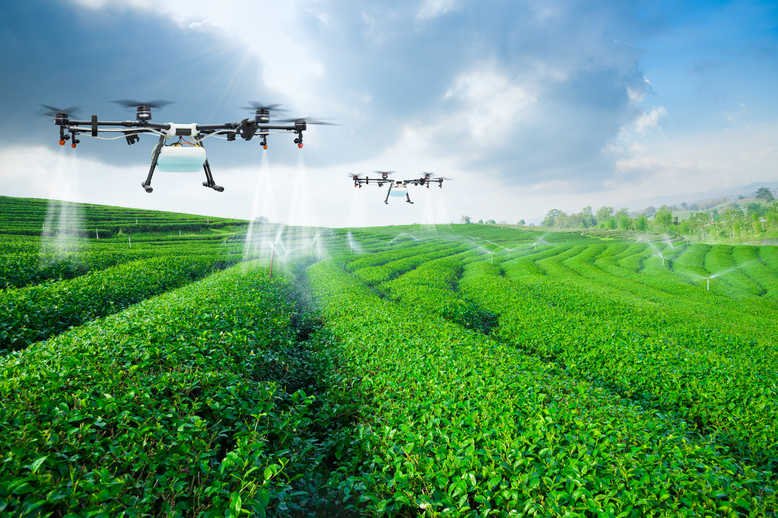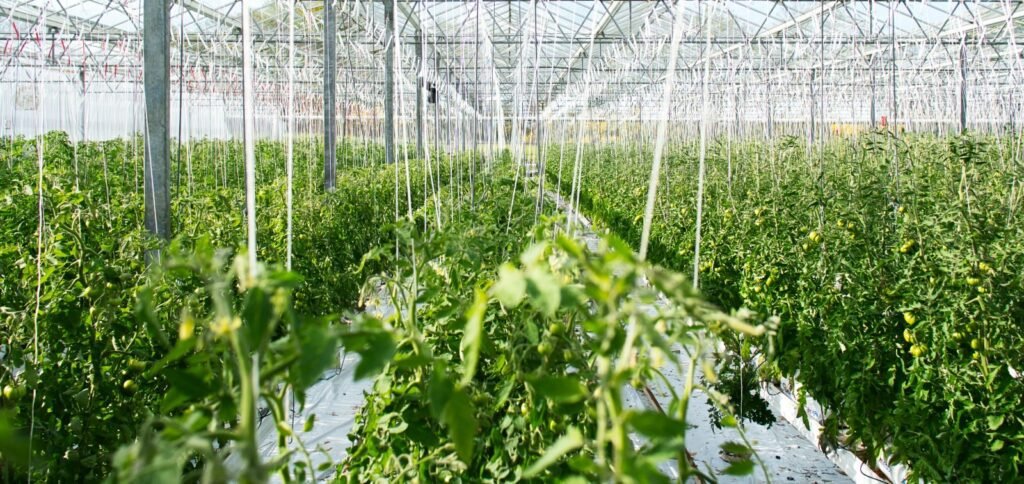The United Arab Emirates (UAE) has officially launched a groundbreaking initiative aimed at strengthening its national food security through a newly established digital platform. This platform is designed to centralize and connect key players from agriculture, logistics, trade, and governmental sectors, creating a more resilient and sustainable food supply chain within the country. The goal is not just to safeguard food security in the face of global challenges but to foster a more self-sufficient and reliable system that reduces the UAE’s dependence on imported food.
In a country where harsh climatic conditions and limited agricultural land have historically made food production a challenge, the UAE has always relied heavily on food imports. However, the national and global shifts in supply chains, particularly during the COVID-19 pandemic, have exposed vulnerabilities in this model. This innovative initiative aims to address these concerns by optimizing local food production and distribution, enhancing the UAE’s resilience to external disruptions and ensuring a stable food supply for its growing population.
The National Food Security Platform: Uniting Stakeholders
The National Food Security Platform, as it is officially named, represents a central hub where stakeholders from various sectors of the food supply chain can collaborate more efficiently. This platform brings together farmers, logistics companies, importers, distributors, and government agencies into one shared space, enabling seamless communication, data exchange, and collaborative efforts. Through this initiative, all parties involved in the food system are empowered with access to real-time information and insights that can drive more informed decision-making.

The centralization of food supply chain management through this platform is a game-changer. It not only increases transparency and trust among the involved parties but also reduces inefficiencies that have traditionally slowed down food distribution. By ensuring that all relevant stakeholders are working with the same set of data, the platform enhances the overall agility of the food system and ensures smoother operations, from farm to table.

Reducing Reliance on Imported Food
A significant aim of this new platform is to lessen the UAE’s reliance on global food imports, which has been a long-standing concern. As a country with limited agricultural land and challenging growing conditions, the UAE has been heavily dependent on international trade to meet its food needs. This dependency makes the country vulnerable to global disruptions such as trade restrictions, price fluctuations, and geopolitical tensions, all of which can affect the availability and cost of food in the local market.
With the National Food Security Platform, the UAE is looking to tackle this challenge head-on by increasing local food production capabilities, particularly in areas like hydroponics, aquaponics, and vertical farming, which are more suited to the UAE’s climate. The platform will connect these local food producers directly to supply chains, allowing them to better compete with imported goods. Additionally, it will enable better forecasting and planning, which can help mitigate risks related to global market shifts.
In practical terms, the platform facilitates the growth of the UAE’s agricultural sector by connecting farmers to distributors and retailers in real-time, improving their ability to sell locally grown produce and reducing the need to import food. This initiative aligns with the UAE’s long-term vision of achieving food sustainability and self-sufficiency, reducing reliance on foreign sources and ensuring that the country can weather potential global disruptions.
Leveraging Technology for Smarter Supply Chains
A key feature of the National Food Security Platform is the use of cutting-edge technologies like data analytics, artificial intelligence, and machine learning to optimize food supply chains. These technologies allow the platform to anticipate shifts in demand, predict shortages, and streamline food distribution across the country. For instance, the system can forecast changes in weather patterns or fluctuations in consumer demand, enabling stakeholders to plan ahead and adjust their strategies accordingly.
Moreover, real-time tracking and monitoring capabilities will allow for better coordination between farmers, transporters, wholesalers, and retailers. This will reduce delays in food delivery, minimize waste, and ensure that food products are transported under the right conditions, preserving their quality. Additionally, with smart tracking systems, the platform can help monitor the shelf life of food products, ensuring that perishable goods are distributed before they spoil.
The use of data analytics also supports more efficient stock management and forecasting, allowing the country to predict future food shortages and take proactive steps to avoid them. With these technological advancements, the UAE can ensure that its food supply chain is not only more resilient but also highly responsive to changing conditions.
Collaboration Across Sectors: Public and Private Partnerships

The UAE government has long emphasized the importance of public-private partnerships in driving sustainable development, and this initiative is no exception. The National Food Security Platform is designed to foster collaboration between both the public and private sectors, with a shared goal of improving food security. By bringing together government agencies, businesses, and technology providers, the platform aims to create a cohesive strategy that tackles food security challenges from all angles.
For the government, this platform offers a valuable tool for monitoring and managing food reserves, optimizing food imports, and ensuring that food distribution is equitable across the country. On the other hand, private sector stakeholders—such as agricultural producers, logistics providers, and retailers—stand to benefit from the platform’s streamlined operations and more efficient supply chains. Through closer cooperation, both sectors can address common challenges and share insights that can lead to better long-term outcomes for food security.
Furthermore, the platform is also expected to spark innovation in the food security sector, with tech companies developing new tools and solutions to improve food distribution, storage, and production. The collaboration between various stakeholders will likely foster a more agile and forward-thinking food ecosystem.
Managing Food Reserves: Ensuring Stability
Another major advantage of the National Food Security Platform is its ability to improve the management of the UAE’s food reserves. As part of its food security strategy, the UAE has already invested in sophisticated storage facilities and distribution systems to ensure that there is always a buffer of food available in case of emergencies. The platform will take these efforts to the next level by leveraging data analytics and artificial intelligence to better predict food shortages and optimize inventory levels.
For instance, the system can automatically track the quantity and condition of food reserves, ensuring that supplies are replenished before they run low. This capability is crucial for handling sudden disruptions in the supply chain, such as natural disasters, geopolitical tensions, or price volatility. The ability to manage food reserves more effectively will help the UAE avoid food shortages and maintain stability even during challenging times.
Conclusion: A Vision for the Future
The launch of the National Food Security Platform marks a transformative step forward in the UAE’s quest for food security and sustainability. By leveraging technology, enhancing collaboration, and focusing on self-sufficiency, the platform provides a comprehensive solution to the challenges the country faces in maintaining a stable and resilient food supply.
As the global food system continues to face pressures from climate change, trade disruptions, and population growth, the UAE’s proactive approach will serve as a valuable model for other nations seeking to strengthen their own food security. By investing in local food production, optimizing supply chains, and embracing innovation, the UAE is well on its way to achieving long-term food security and providing its citizens with a reliable, safe, and sustainable food supply for years to come.
Also read: Emirates Launches Direct Flights to Bogotá, Colombia













